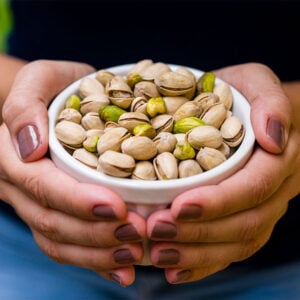
Better Blood Sugar WITHOUT Dieting
If you’re fighting the blood sugar battle, I have good news:
You CAN win.
And you can manage your blood sugar levels without even changing your diet.
Here’s how.
A new study reveals the importance of WHEN—not just WHAT you eat—when trying to reduce your risk of type 2 diabetes.
For this particular study, researchers carefully crunched the data from over 100,000 people with an average age of 43. Dietary records were kept for each participant for two years, and then follow-up was done for seven.
It turns out that the folks who regularly ate breakfast after 9 a.m. had a significantly HIGHER risk of type 2 diabetes.
But people who ate dinner earlier had a LOWER risk of developing the disease.
In addition, volunteers who fasted for 13 hours or more overnight also had a lower incidence of type 2 diabetes—but only if breakfast was eaten before 8:00 a.m.
This highlights two crucial points.
- Intermittent fasting (going for 12+ hours without eating) is beneficial.
- It’s most beneficial when your eating window occurs earlier in the day.
So, why does eating earlier in the day have such a significant impact on blood sugar and diabetes risk?
It’s because your circadian rhythm impacts your metabolism. It controls glucose, insulin, glucose tolerance, and appetite.
All of these critical systems peak earlier in the day—making eating earlier optimal because of how well your body will handle the food.
For example, eating soon after you wake triggers hormones like insulin to help shuttle sugar into your cells and out of your bloodstream.
Now, this doesn’t give you a free pass to eat Entenmann’s for breakfast.
But when combined with a healthy lifestyle, this simple shift could shield you from developing type 2 diabetes… or help set you on a better, healthier path if you’re already there.
P.S. THIS causes 70% of type 2 diabetes cases.
SOURCE:
Anna Palomar-Cros and others, “Associations of meal timing, number of eating occasions and night-time fasting duration with incidence of type 2 diabetes in the NutriNet-Santé cohort,” International Journal of Epidemiology, 2023;, dyad081, doi. org/10.1093/ije/dyad081
Written By Dr. Richard Gerhauser, M.D.
For years he’s been the trusted doctor for celebrities, world-class athletes, and countless seniors looking to reclaim their health.
And now…for the first time ever… he’s making his medical breakthroughs available to readers all across America.
Dr. Richard Gerhauser, M.D. is one of the most pioneering and innovative minds in medicine today – and he delivers cutting-edge cures each month through his Natural Health Response newsletter.
Natural Health Response readers get full access to Dr. Gerhauser’s protocols for chronic pain… heart disease… diabetes… Alzheimer’s… and even cancer. These are the very same treatments Dr. Gerhauser recommends to his own patients at his practice in Tucson, Arizona.
In addition to being a board-certified medical doctor, Dr. Gerhauser has earned two master’s degrees and has served as a clinical professor at the University of Arizona.
And as a physician at the world-famous Canyon Ranch, Dr. Gerhauser treated celebrities from around the world who paid dearly for the type of next-generation health information he provides Natural Health Response readers each month.
View More Free Articles
“Dinner Plate” Danger Raises Prostate Risk
Did you know that prostate cancer is FAR more prevalent in developed parts of the world than in less developed regions? Strange right? What is it about our modern, developed society that’s attacking our male population? There are MANY answers to this question. The primary one I will focus on today is a significant environmental […]
The 5-Minute Solution to Better Blood Pressure
Are you one of the millions who battle the so-called “silent killer” hypertension? And do you have five minutes to spare daily? If so, you could be well on your way to significantly healthier blood pressure. Sound too good to be true? A new study proves it. And the best part? It’s incredibly easy If […]
“Eye-Opening” Benefits of Pistachios
Imagine if there were a daily snack that could protect your vision. Well, a recent study brings good news for the 20 million U.S. adults already battling macular degeneration—the leading cause of vision loss for those over 60. Adding a handful of pistachios to your diet might help shield your eyesight. Let’s take a “look.” […]
Get Better Blood Sugar This Holiday Season
Let’s face it. The holidays are NOT good for your waistline… or your blood sugar levels. Potlucks, family dinners, cookie exchanges, Christmas parties… you know the drill. So, if you’re one of the 98 million people on the brink of type 2 diabetes, it’s VITAL to take steps to manage your blood sugar levels as […]
Common Vitamin Is a Hidden Colon Cancer Shield
With aggressive colon cancer on the rise in younger people, I’m always on the lookout for research showing how we can all lower our risks. Over the past few months, I’ve shared studies showing that stress, oral bacteria, obesity, and circadian disruption are all tied to colon cancer. And just last week I revealed how […]
Ditch Dieting for Better Blood Sugar Control
I’ll just say this right upfront… Type 2 diabetes is a lifestyle issue. And while diet is PART of the equation, it’s not the only thing to consider when managing your blood sugar. Over the past few months, I’ve highlighted research showing that factors like your bedtime and activity levels impact diabetes risk. Today, I […]
Slash Painful Nighttime Leg Cramps
On this Veterans Day, my team and I honor and thank all who have served in our armed forces. Your courage, sacrifice, and dedication to protecting our nation’s freedoms will never be forgotten. Not all health problems are life-threatening. There are plenty that threaten your quality of life. Nighttime leg cramps are one of them. […]
Life-Saving Fats Shield Against Cancer—Here’s How
The word “cancer” alone can stir up fear and worry, especially as we watch friends or family face its challenges. It’s one of the most brutal battles our bodies can go through. And prevention has never been more essential. While there are no guarantees, we have more tools than ever to reduce our risks. And […]
Sacred Indian Secret Protects Eyesight
Age-related macular degeneration (AMD) is a terrifying chronic eye disease. It affects the macula, a small area located in your eye’s retina. AMD slowly steals your vision, blurring or blacking out everything in the center of your visual field. It’s the leading cause of blindness in those over 60 in the USA. More than 200,000 […]
The Fruit Bowl Secret to Better Sleep
Having trouble sleeping? The answer might be in your daily diet. A groundbreaking new study reveals that a common vitamin, long known for fighting colds and supporting immune health, could also help you get better sleep. And the best part is that you don’t need to look any further than your fruit bowl to get […]










